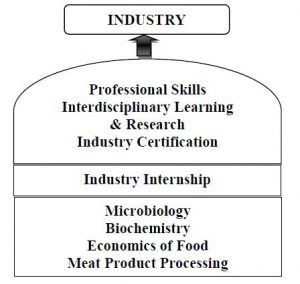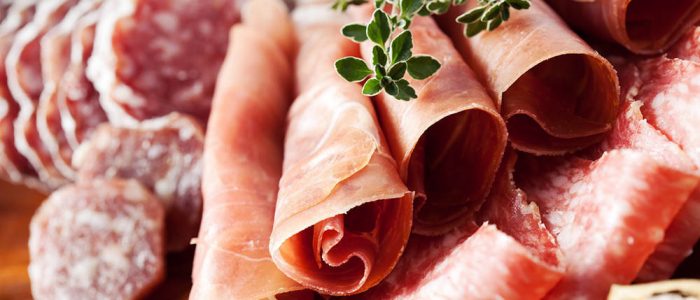Funding for the Meat Education and Training Network (MEaTnet) for Assuring Meat Safety and Quality has been provided by the Natural Sciences and Engineering Research Council of Canada (NSERC) through the Collaborative Research and Training Experience Program (CREATE). Funding and in kind support are contributed from the University of Alberta.
History of MEaTnet
In 2014, federal funding was secured through the NSERC CREATE program to establish a national meat science graduate internship program in Canada. This program, known as the Meat Education and Training Network (MEaTnet), is housed at the Department of Agricultural, Food and Nutritional Science at the University of Alberta. The MEaTnet, which includes Université Laval, University of Guelph, University of Saskatchewan and Olds College as members, will play a key role in transitioning graduate students from academia to industry jobs through internships and specialized university-level professional training courses. Graduates will work with industry partners to conduct industry-focused research, will develop new technologies and strategies to improve meat safety and quality, and will participate in new meat product development.
MEATNET OBJECTIVES
The NSERC CREATE program is a national graduate program designed for and with industry so that graduates from this program are “job-ready” for leadership positions in industry, government or academia. The program has opportunities for bilingual learning and industry research internships, and will train graduate students to apply globally-respected, state-of-the-art knowledge to successfully innovate solutions that support a high value Canadian meat industry.
The long term objectives of the MEaTnet are:
- To provide expert training in four areas of meat science research: meat microbiology and safety, meat processing, meat biochemistry and muscle food economics.
- To provide training within a collaborative, complementary, multi-disciplinary team environment in the science of meat production and processing;
- To combine knowledge of economics, policy and consumer behaviour with meat science;
- To provide extended interactions with industry personnel to enhance the professional development of students;
- To prepare graduates of the program to enter careers at provincial, national and international levels in the meat animal products industry and in government departments concerned with animal products manufacturing, regulations, inspections and policies.
MEATNET GRADUATE PROGRAM DESIGN


